Explore the latest news and find out what's on this month
Explore our learning offer for schools, families and community groups
Uncover the rich history of Elmbridge with our latest online exhibitions
Want to discover more about your local area?
Explore the latest news and find out what's on this month
Explore our learning offer for schools, families and community groups
Uncover the rich history of Elmbridge with our latest online exhibitions
Want to discover more about your local area?
As climate change progresses, we have seen how some natural habitats are being destroyed with devastating consequences. Abundant green spaces and common land in Elmbridge have been essential to conserving wildlife throughout history. The key question that students addressed in this section was:
This ‘Nature Note Book’ belonged to Joyce Anstey, who was born in 1923 and attended the Hall School in Weybridge from 1933-39.
It includes studies on fruits, nuts, underground stems and the parts of a flower, with hand-coloured drawings. It is an example of how students can better conserve the natural environment by learning about it, and many historic students as a consequence knew how to grow and maintain their own plants and produce.
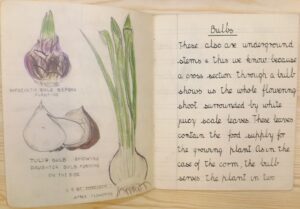
The inside of Joyce Anstey’s ‘Nature Note Book’.
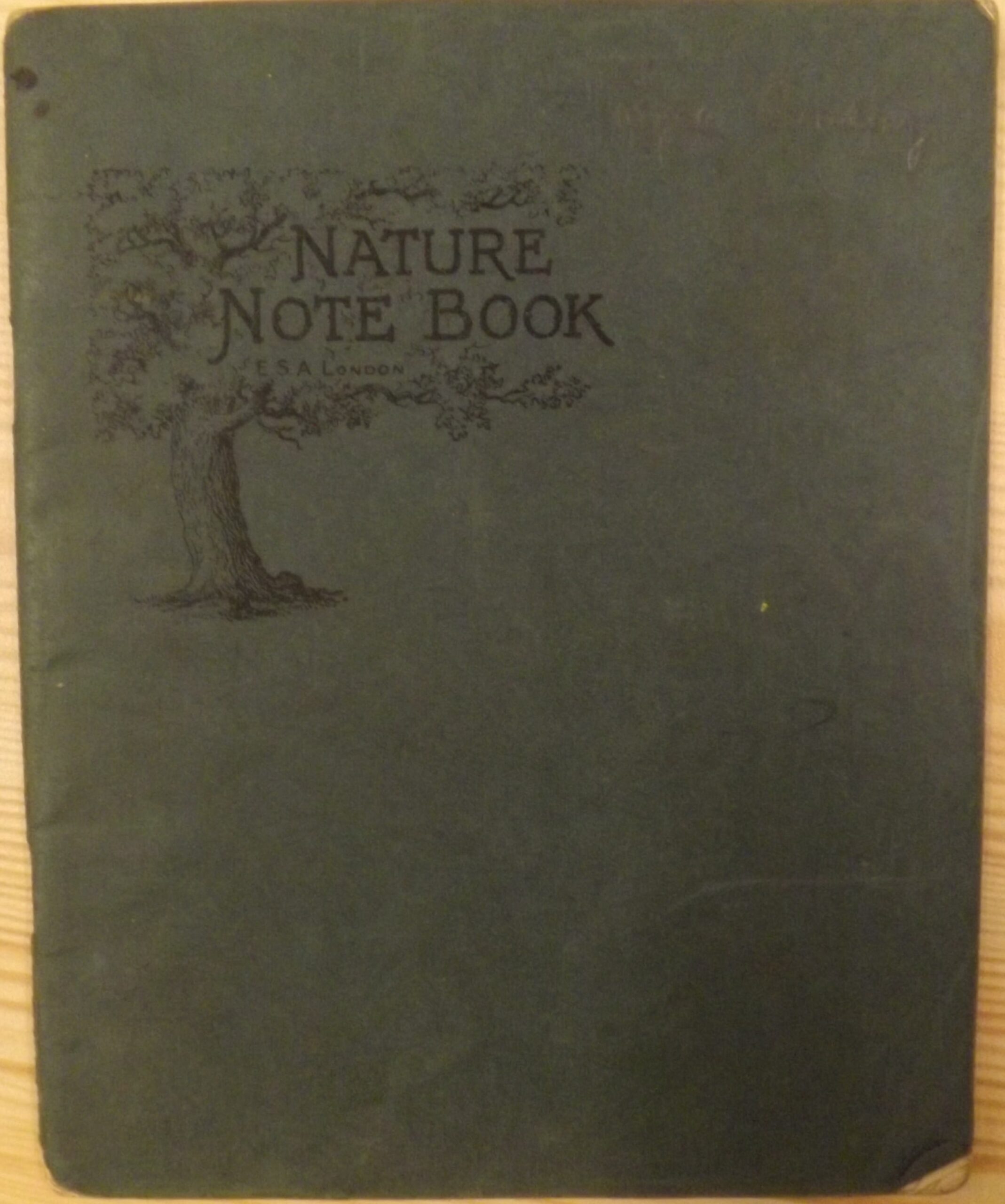 Joyce Anstey's 'Nature Note Book', the Hall School, Weybridge c.1930s.
Joyce Anstey's 'Nature Note Book', the Hall School, Weybridge c.1930s. 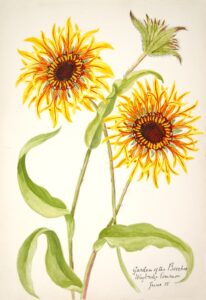
Watercolour by Ethel Harting entitled ‘Garden of the Beeches, Weybridge Common’, dated 15th June 1897.
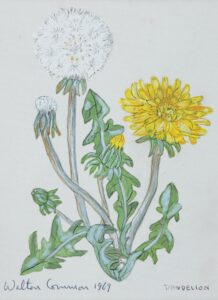
Watercolour of a dandelion, Walton Common, 1969.
Local botanist Ethel Harting painted over 100 watercolours of plants found locally in the late 19th to early 20th century. The Victorians’ appreciation of local nature and concern for its gradual loss in the borough is clear, and continues through to the modern day.
 Article raising concerns about developing common land, May 1930.
Article raising concerns about developing common land, May 1930.
“Some concern has been experienced by residents near and lovers of the heath as to the growth of the small buildings on the railway company’s property adjacent to the station… The feeling is that the number of these buildings should not be indefinitely extended.”
This cutting comes from a scrapbook compiled by Sir Philip Pilditch, of letters and news articles relating to Weybridge Heath, The Commons Preservation Society and the Weybridge Poors Allotments. In this, he raises concerns about developing heath land for new railway buildings in May 1930. It shows that, despite the railway’s many environmental benefits as a mode of transport, it could also have environmental drawbacks if it was built over green space full of wildlife.
Allotments were also initially a cause for concern amongst Victorian residents. 72 acres of allotments were set aside for the poor after Weybridge Common’s enclosure in 1800, and the use of heath land for this raised opposition because of how it would destroy some local wildlife. Today, however, allotments are seen as a great support to sustainable living and enable many people to grow their own produce, reducing the carbon footprint of their food.
Key questions students considered here were:
A footpath to Arbrook Common, Claygate.
What can you see in this image?
What are the advantages of people using
the footpath and walking rather than
building a road here?
Postcard of a watercolour entitled 'A Corner of Esher Common',
with a pond and trees on the right, a cottage on the left
and geese in the centre.
West End Common, in Esher. Three
children are sitting by the pond.
What might the children in this photo
have been doing?
Why does nature and wildlife thrive
in areas that aren’t built up?
Maureen Harper working on her allotment.
The Weybridge allotments lie behind St. James'
Church, with access from Church Path or Melrose
Road, Weybridge Park.
What are some of the things people could grow
on their allotments?
‘Save our planet, before it’s too late!’
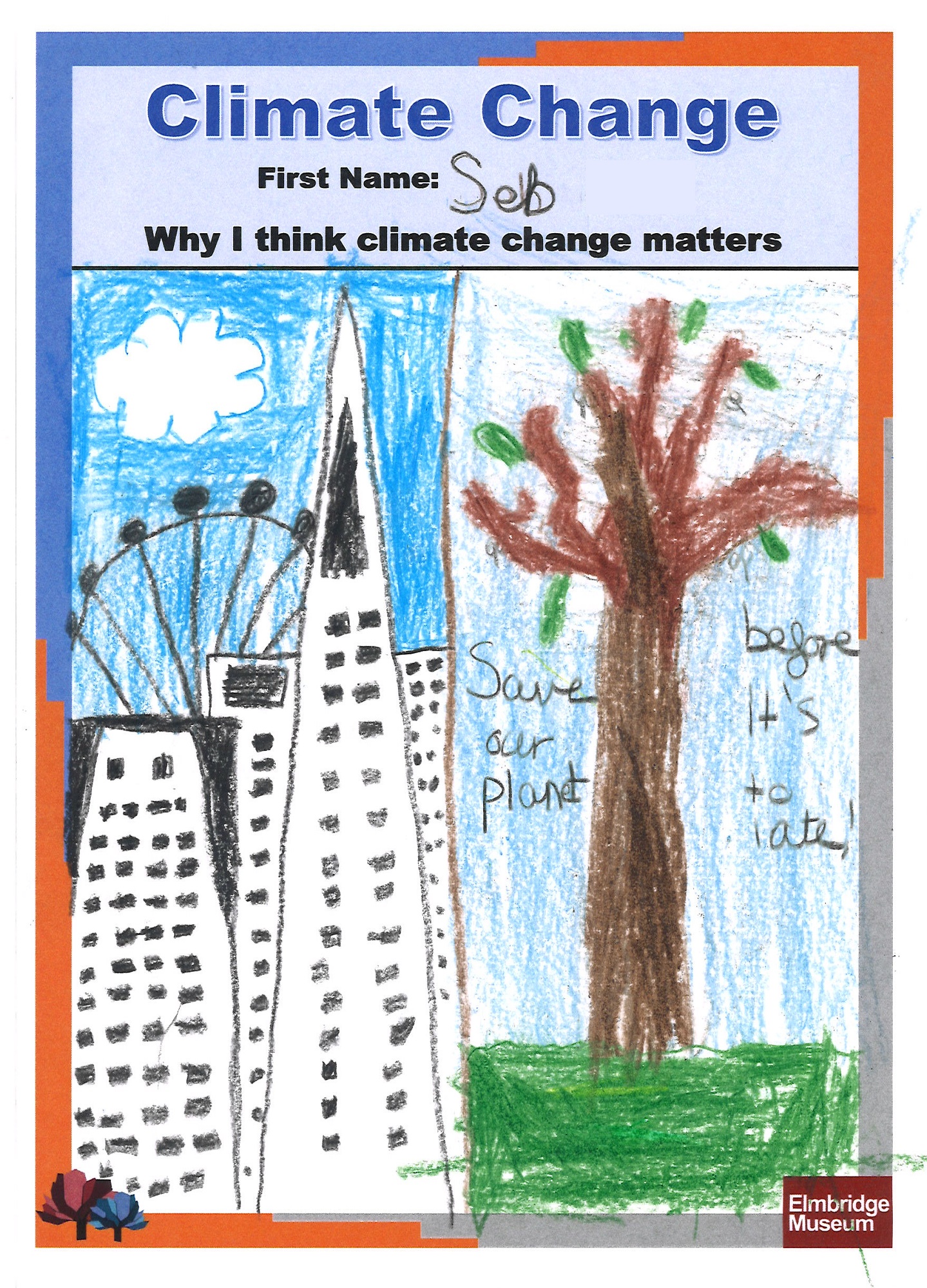
‘Help by watering the world. Help by growing out the ground!’
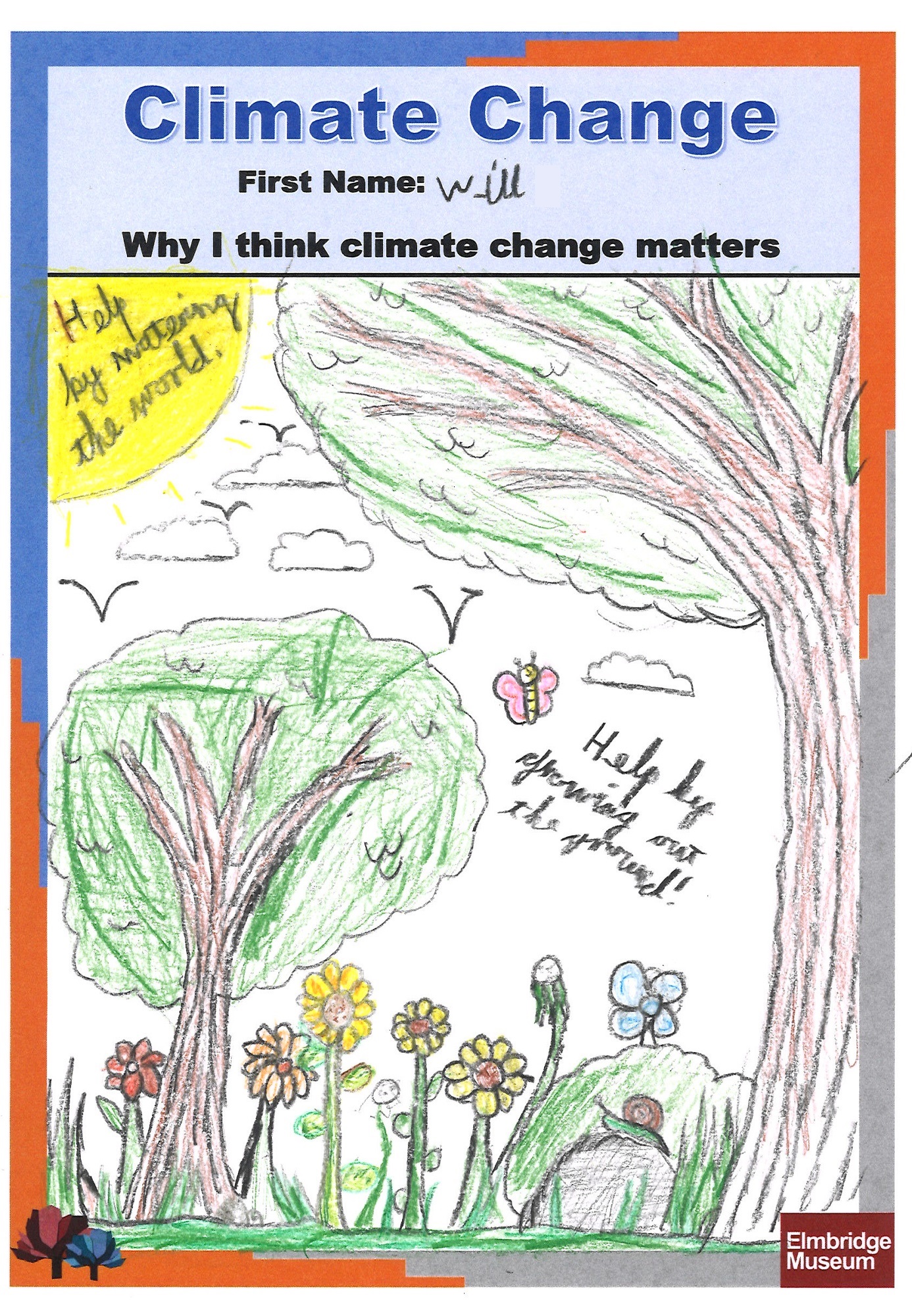
‘Bad: Do not litter, it is bad for the environment. Good: Put your rubbish in the bin, it saves the animals and the earth.’

‘Save the planet!! Without trees, our air would be very polluted. To stop that, we should stop cutting down trees!’
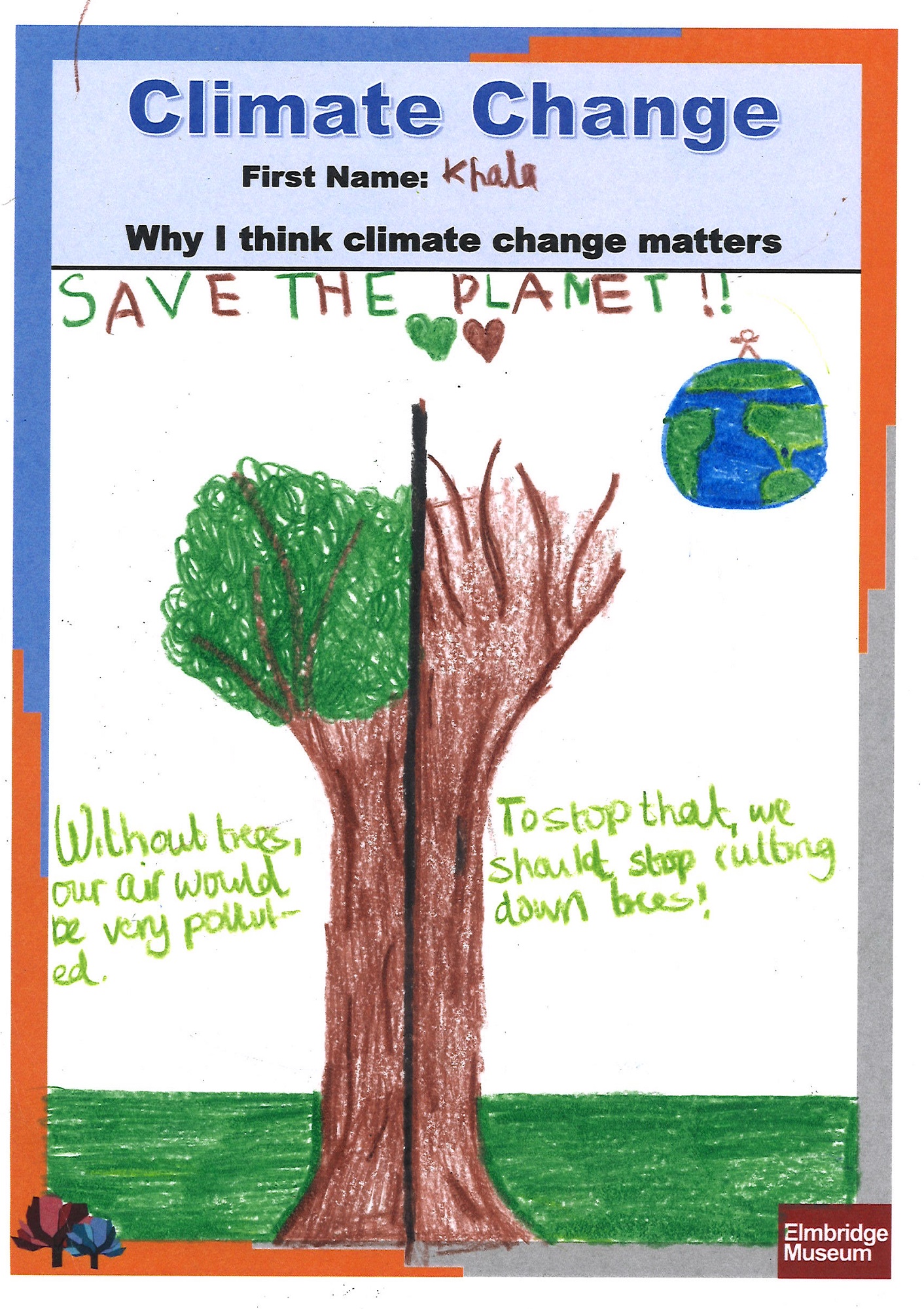
‘Help our planet by planting plants and saving our green space!’
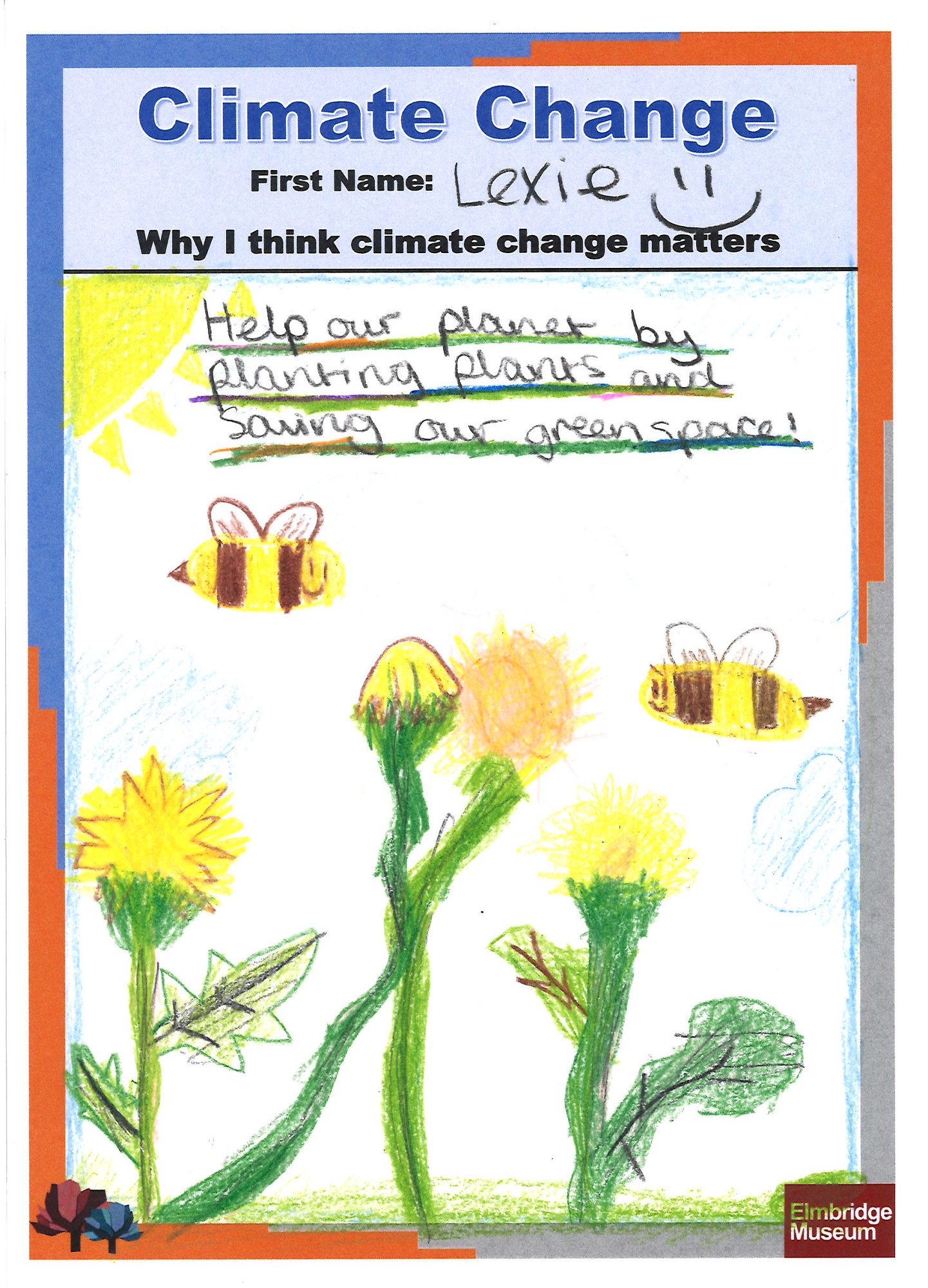
‘Save our wildlife. Don’t cut down wildlife, it’s someone’s home.’
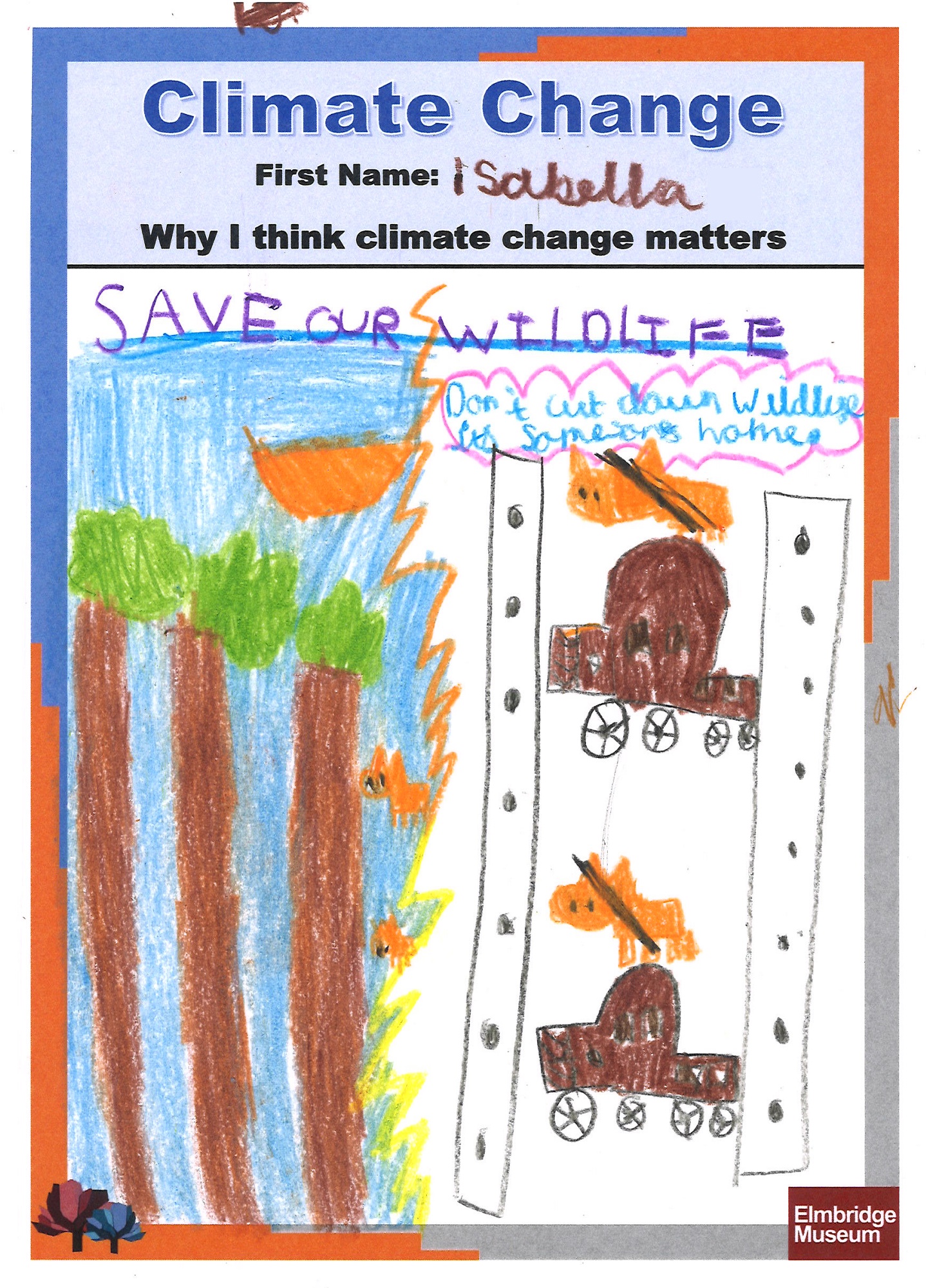
‘Put your rubbish in the bin! Help COP26. Respect the earth. Healthy world = happy world! Make wise choices. Bad – rubbish overflow! Trees unhealthy. Help stop climate change!’
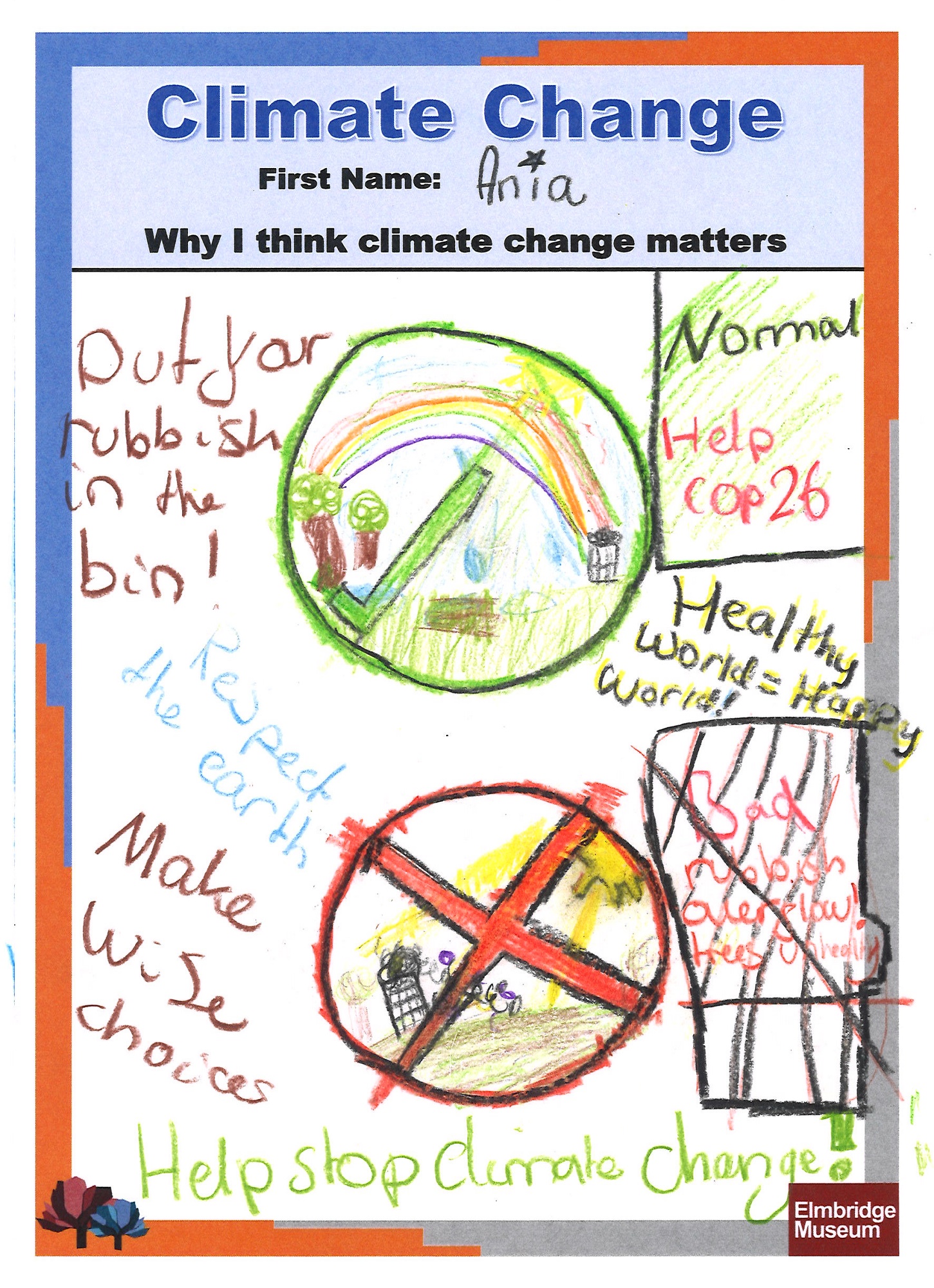
‘Stop chopping trees and save forests! Save the world!’
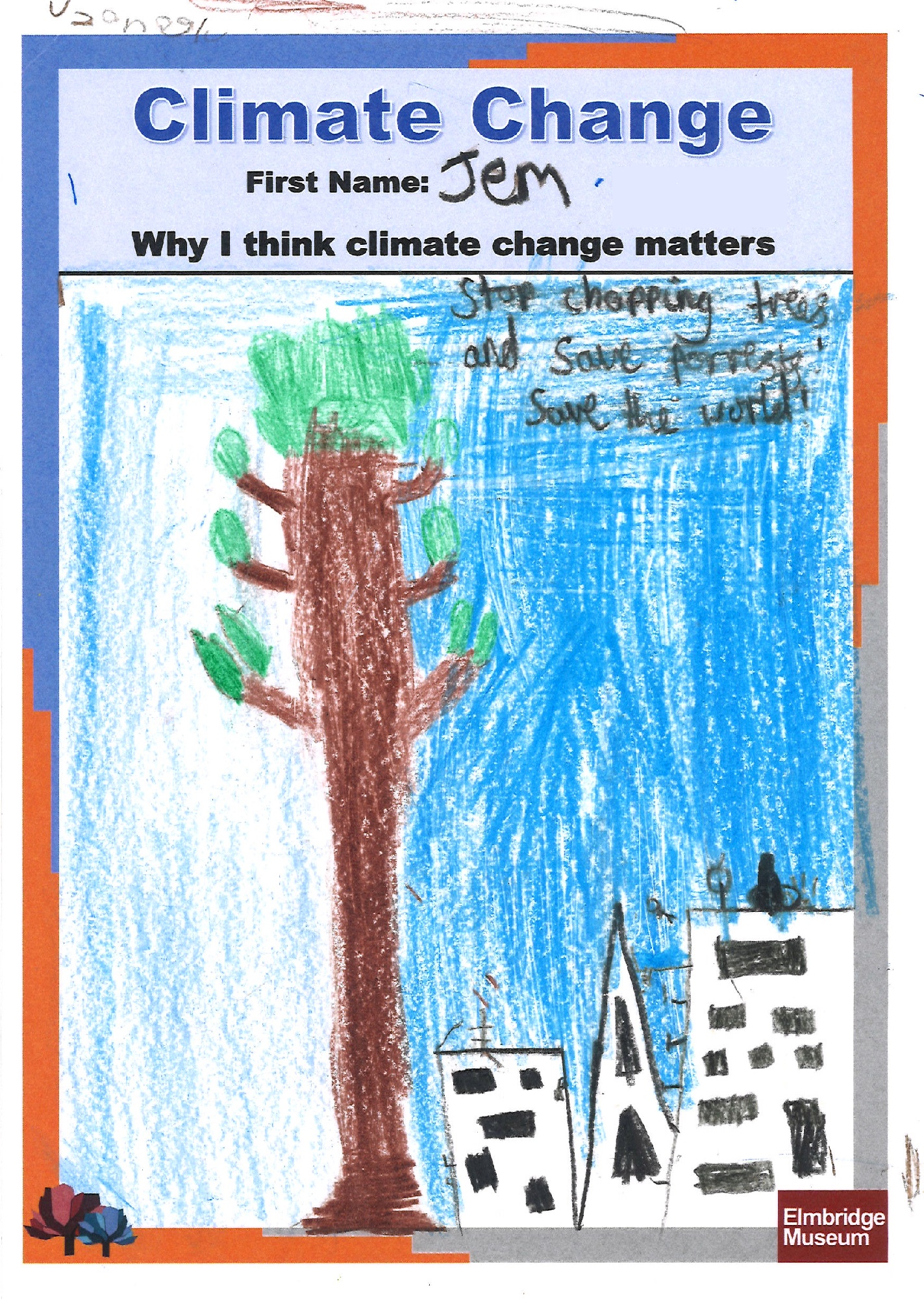
‘Leave the trees alone. Don’t chop trees. Plant trees.’
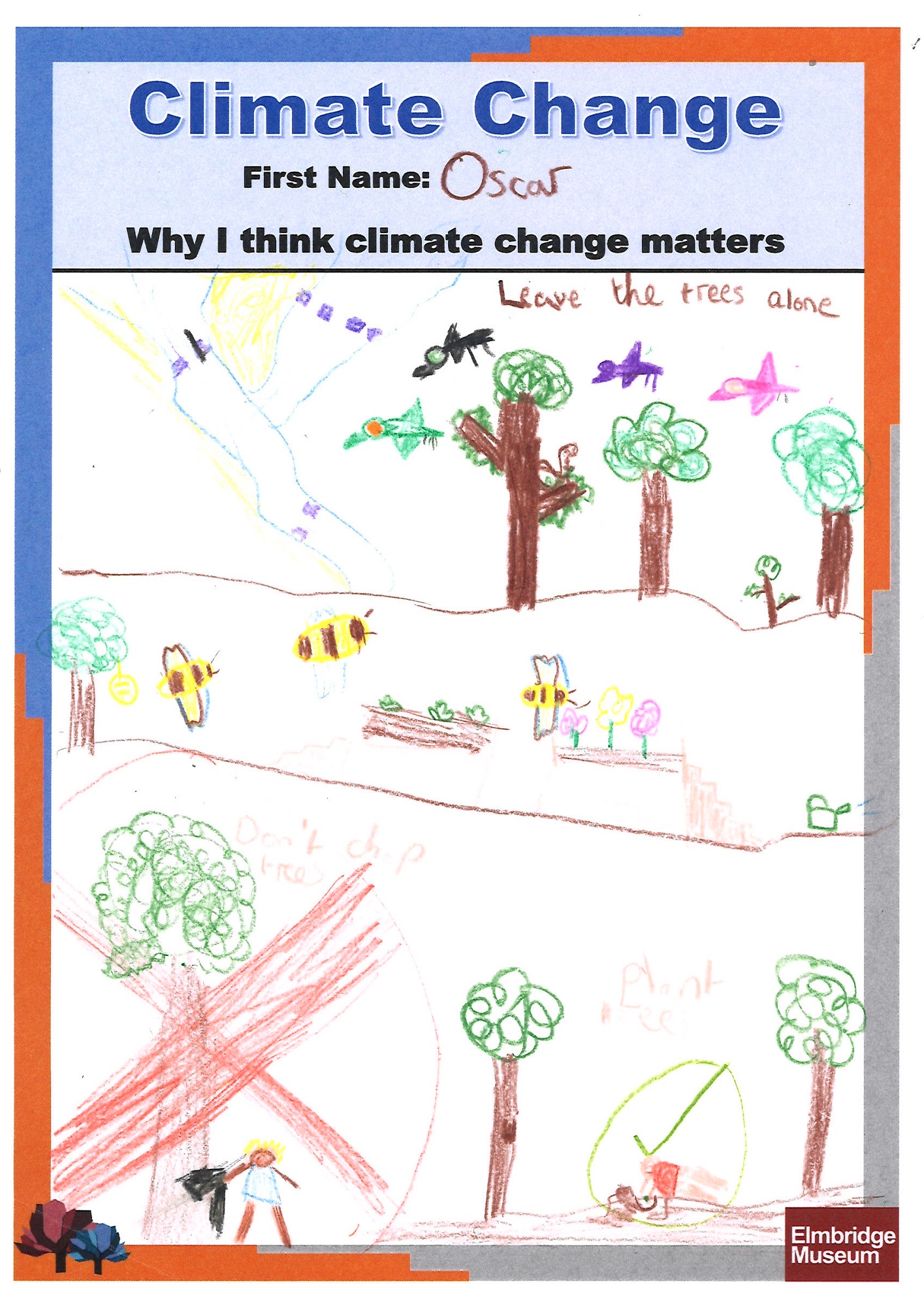
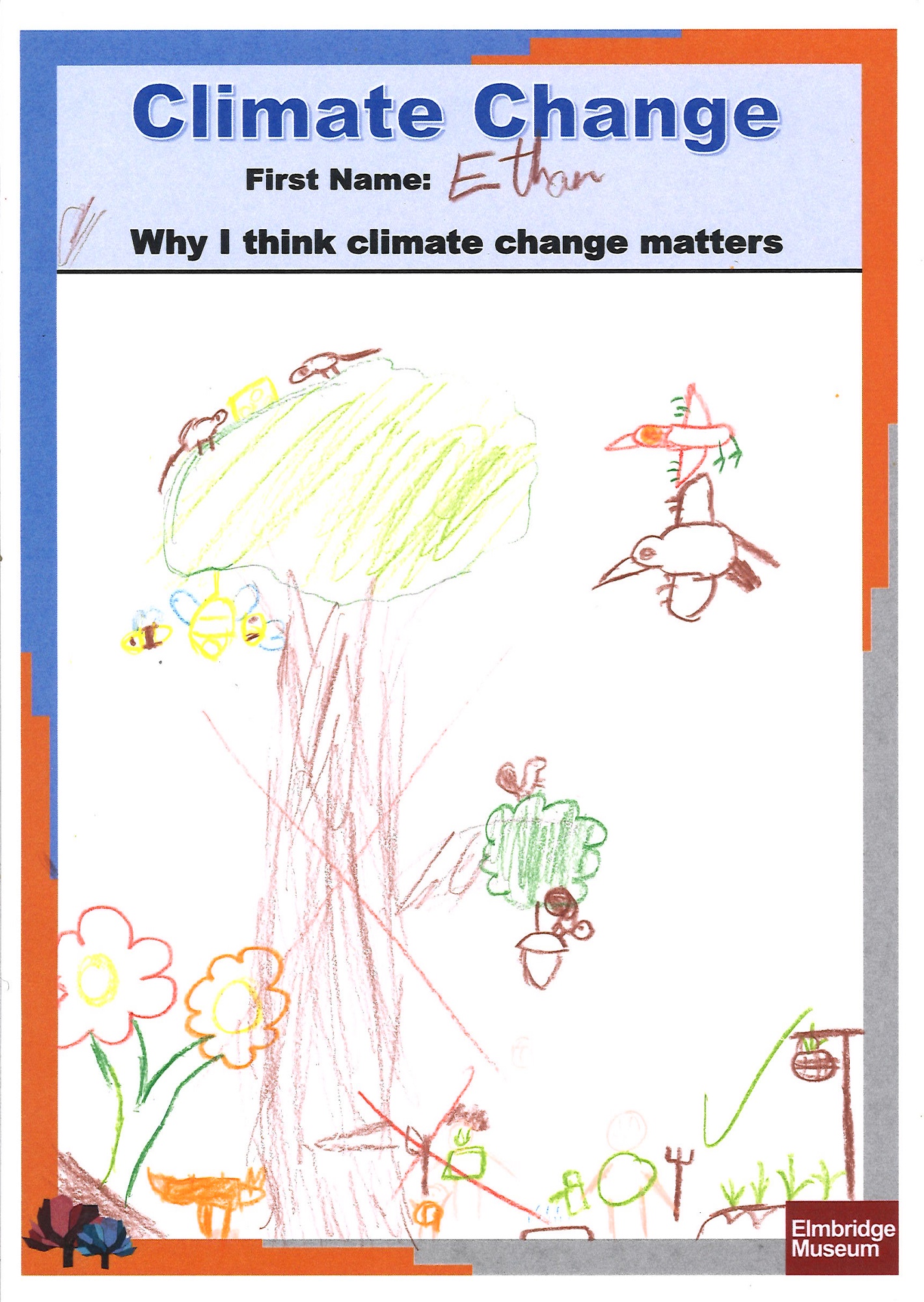
Leave a Comment
Share your thoughts on climate change and the local environment, or submit your own poster!You need to be logged in to comment.
Go to login / register